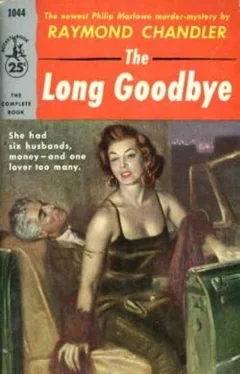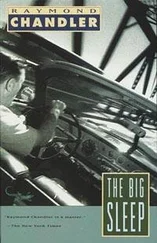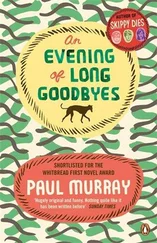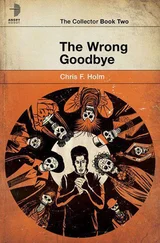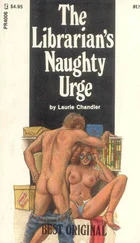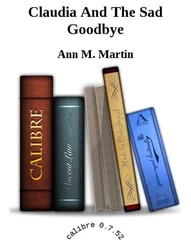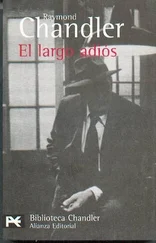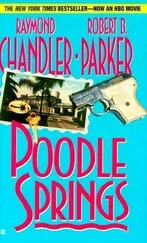Raymond Chandler - The Long Goodbye
Здесь есть возможность читать онлайн «Raymond Chandler - The Long Goodbye» весь текст электронной книги совершенно бесплатно (целиком полную версию без сокращений). В некоторых случаях можно слушать аудио, скачать через торрент в формате fb2 и присутствует краткое содержание. Жанр: Классический детектив, на английском языке. Описание произведения, (предисловие) а так же отзывы посетителей доступны на портале библиотеки ЛибКат.
- Название:The Long Goodbye
- Автор:
- Жанр:
- Год:неизвестен
- ISBN:нет данных
- Рейтинг книги:4 / 5. Голосов: 1
-
Избранное:Добавить в избранное
- Отзывы:
-
Ваша оценка:
The Long Goodbye: краткое содержание, описание и аннотация
Предлагаем к чтению аннотацию, описание, краткое содержание или предисловие (зависит от того, что написал сам автор книги «The Long Goodbye»). Если вы не нашли необходимую информацию о книге — напишите в комментариях, мы постараемся отыскать её.
Marlowe meets and befriends English expatriate Terry Lennox, a drunk who has been abandoned by his ex-wife Sylvia, at The Dancers Club. Months later he spots Lennox drunk again, runs him home, and sobers him up, giving him traveling money to Las Vegas. Lennox sends repayment and re-marries Sylvia, after which Marlowe shares an occasional drink with him: during one, Lennox accuses Sylvia of infidelity. He next appears at Marlowe's door in flight to Tijuana, apparently because he has killed her. Marlowe drives him there and stonewalls policemen Green and Dayton when he returns, spending time in jail. He refuses to cooperate with a lawyer sent by Sylvia's millionaire father, local magnate Harlan Potter.
Marlowe won't talk even after the D.A. says that Lennox wrote a full confession before shooting himself in Mexico. A reporter suggests to him that there is a cover-up, which is confirmed by calls from the lawyer and warnings from gangster Mendy Menendez, an old friend of Lennox, who explains that Lennox was captured by the Nazis during World War II. Marlowe gets a letter from Lennox, which waffles on his role in the murder and contains a $5,000 bill.
A second apparent plot begins when Howard Spencer, a publisher's representative, hires Marlowe to baby-sit hack novelist Roger Wade (Chandler's self-portrait). The alcoholic writer can't finish his novel and is missing, but his stunning blonde wife Eileen provides a note about "Dr. V" and details of Wade's stays at drunk farms. Marlowe gets information on these places from an old friend in a big agency and narrows his list to three suspects. None pan out except Dr. Verringer, who is about to sell out so that he can support a manic-depressive named Earl. Spying Wade through a window, Marlowe saves him from crazy Earl. For this he collects a kiss from Eileen, and he learns that she knew Sylvia Lennox, which links the two plots.
A lull follows, during which Marlowe meets Sylvia's sister Linda Loring and her insufferable doctor husband. They argue about Sylvia's murder and whether Harlan Potter wants the case closed, but a respectful friendship ensues. Marlowe sees the Lorings again at Roger Wade's cocktail party, where the doctor accuses the novelist of sleeping with his wife. A scene follows, but Wade handles the blow-up well. Marlowe, however, won't accept $1,000 to nanny the author through his novel. He doesn't like the writer's ego or his wife, who tells him her own story of true love lost.
A week later Wade calls for help, and Marlowe arrives to find him collapsed in front of his house, with Eileen sitting nearby smoking. He and the house-boy put Wade to bed, and Marlowe walks away from an opportunity with Eileen. Instead he collects Wade's drunken notes to gain insight into his problems. Then there's a shot. Marlowe finds husband and wife struggling over a gun, the novelist claiming he attempted suicide. Dosed with drugs, he finally sleeps. Eileen invites Marlowe into her bed, but he declines.
Linda Loring introduces Marlowe to Harlan Potter, who wants the Lennox murder closed. Marlowe demurs. Now information develops that Lennox used to call himself Paul Marston, and that Roger Wade had an affair with Sylvia. Marlowe, at the Wades with Eileen, finds the writer dead. His old friend Lt. Ohls treats the case as a suicide, but Eileen accuses Marlowe. More comes out about Lennox's former life: he was married to Eileen and presumed dead in World War I, so she married Wade. But then he reappeared and she panicked.
In the revealed plot, she killed both Sylvia and Roger. Lennox' name is cleared. Linda Loring divorces her obnoxious husband and asks Marlowe to marry her; he refuses to be a kept man, but does spend a night with her, the only woman Marlowe ever beds (aside from Helen Vermilyea in Chandler's better-off-forgotten swan song, Playback. There's a final detail to check and it's supplied by Senor Maioranos ("Mr. Better-years"), who is Terry Lennox in disguise. He and Marlowe talk, but the old affection is gone. As Marlowe said of Linda Loring's departure, "to say goodbye is to die a little."
As he had in the preceding The Little Sister (1949), Chandler engaged in pointed social criticism in The Long Goodbye, stretching the genre. The brunt of his attack is born by the rich: Marlowe sees their enterprises – business, the press, gambling interests, lawyers, and the courts – forming a monolith that disenfranchises the average citizen. "Money tends to have a life of its own, even a conscience of its own," says villain Harlan Potter, who is the ironic spokesman for many of Chandler's views (190-91). The roots of crime lie not with nymphomaniacs (as in The Big Sleep) or in economic climbing (Farewell's Velma Valento), but in big money's exploitation of the lowest-common-denominator effect of mass institutions and democracy. This, Chandler finally decided, rather than some inherently debilitating effect of the setting, robs immigrants to L.A. of the admirable independence that drew them there.
More interesting still is the way Chandler used the novel, which he wrote as his wife lay dying, to analyze and comment on his own life. Like Terry Lennox, Chandler was a soldier scarred by World War I, whose young days at Dabney Oil were full of big cars and illicit affairs. Like Roger Wade, he had become a middle-aged, childless, self-hating, alcoholic, celebrity writer. Like Philip Marlowe, Chandler clung in conscience to early ideals, belief in character, fidelity, and respect for creation. The novel detests the very self-pity that propels it. Can Chandler integrate the parts of his life? Marlowe's last words to Lennox are "So long, Senor Maioranos. Nice to have known you – however briefly" (311). The final answer is no. It is no accident that Terry Lennox and Roger Wade never appear together, but rather a psychological impossibility. That a woman undoes both is Chandler's old saw, but secondary here. "Your husband is a guy who can take a long hard look at himself and see what is there," says Marlowe to Eileen. "Most people go through life using up half their energy trying to protect a dignity they never had" (153). Not until Ross Macdonald would the hard-boiled novel again be exploited for autobiographical insight so sharply.
